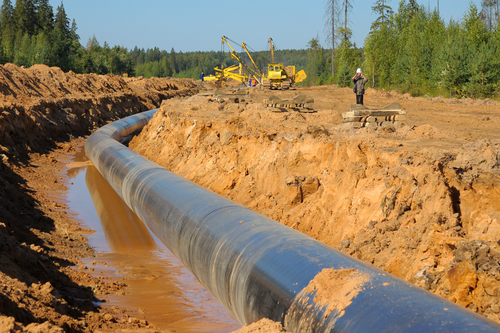
The Trump administration has announced a final rule that clarifies a key section of the U.S. Clean Water Act (CWA) that should now speed up the approval of energy infrastructure projects.
The Environmental Protection Agency (EPA) said June 1 that the new final rule on Section 401 of the CWA, which became law in 1972, requires states and Native American tribes to rule on permit requests within one year of being submitted, and that decisions should be based solely on the project’s effect on water quality.
“EPA is returning the Clean Water Act certification process under Section 401 to its original purpose, which is to review potential impacts that discharges from federally permitted projects may have on water resources, not to indefinitely delay or block critically important infrastructure,” said EPA Administrator Andrew Wheeler.
The EPA launched its review of the Section 401 process under an executive order issued by the Trump administration in April 2019 directing federal agencies to seek out ways to speed up approval of energy infrastructure projects that supporters say are often bogged down by seemingly endless red tape. “Today, we are following through on President Trump’s Executive Order to curb abuses of the Clean Water Act that have held our nation’s energy infrastructure projects hostage, and to put in place clear guidelines that finally give these projects a path forward,” Wheeler said.
Section 401 certifications are issued by a state or a Native American tribal government based on the individual project’s potential to discharge pollutants into waters within their borders.
The State of New York last month denied Section 401 certification for the proposed Northeast Supply Enhancement pipeline, which would ship natural gas from Pennsylvania to New York City. The state said the dredging for the project would likely churn up sediment laced with chemicals, heavy metals and other toxins that would degrade water quality in New York Bay. The state ruling, however, also declared that shipping more gas into New York could jeopardize plans to reduce the amount of fossil fuels used in the state. The EPA said the new Section 401 rule means that states go beyond the scope of the CWA when they consider “issues other than the impact on water quality.”
The American Petroleum Institute (API) said in a statement that the clarifications would make it less likely that pipelines and similar projects could be blindsided by Section 401 decisions based on factors other than water pollution. “We support the Clean Water Act, and though certain states have continued to go well beyond its scope for water quality certifications, we hope the addition of a well-defined timeline and review process will provide certainty to operators as they develop infrastructure projects that meet state water quality standards,” said API vice president for Midstream and Industry Operations Robin Rorick.
There were also cheers on Capitol Hill by lawmakers from energy-producing states, including U.S. Sen. Shelley Moore Capito (R-WV) whose state, along with Pennsylvania, could ship additional gas supplies into New England if pipeline capacity were to be expanded. “The policy announced today means West Virginia producers could finally have a fair shot at selling affordable natural gas to consumers in New England and elsewhere around the country,” Capito said in a written statement. “The result of states, like New York blocking new pipeline construction, is that our fellow Americans must pay more for dirtier foreign energy, such as polluting fuel oil, often from hostile regimes like Russia.”
The coal industry also stands to benefit from the EPA rule by expanding access to seaports for export purposes. U.S. Sen. John Barrasso (R-WY), chairman of the Senate Environment and Public Works Committee, said in a statement: “The Trump administration’s rule will allow important energy infrastructure projects to get done faster. It’s an important step in the right direction to help Wyoming coal and other energy markets.”